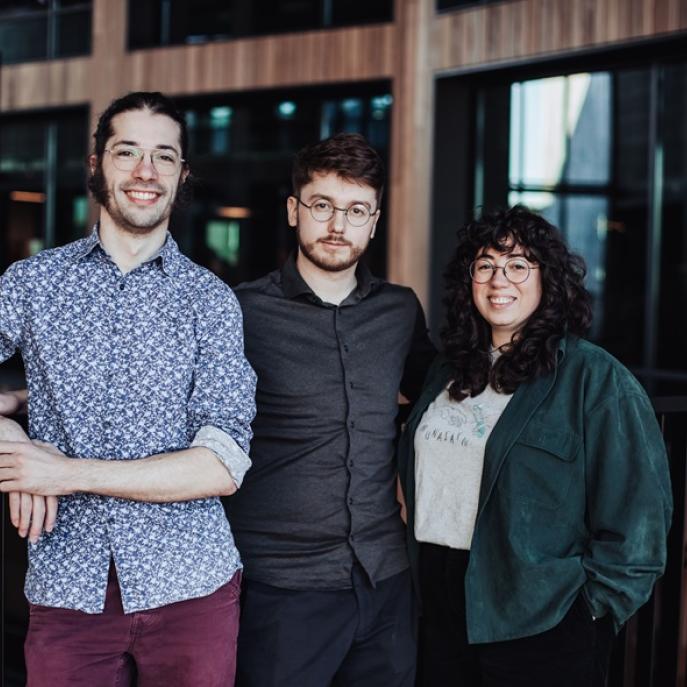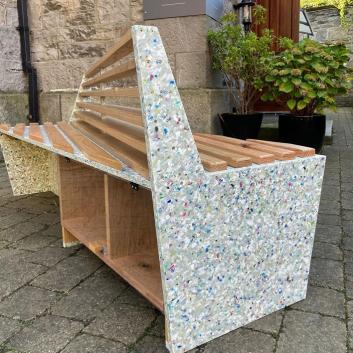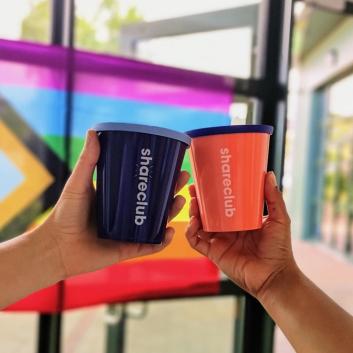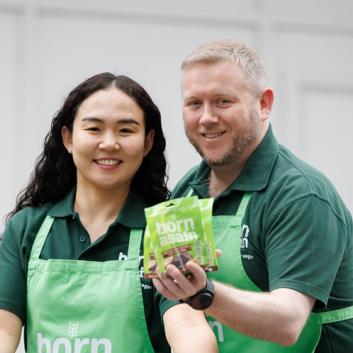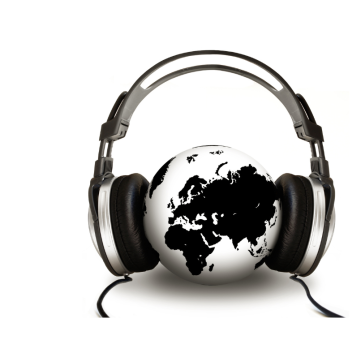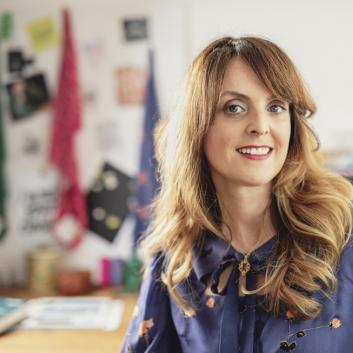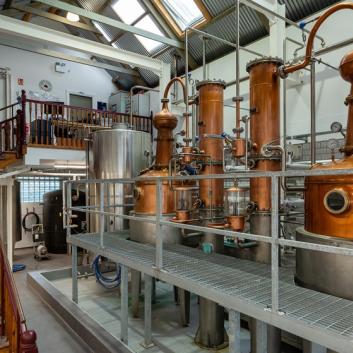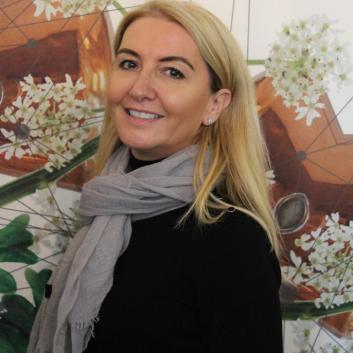Embracing the sharing economy with a practical innovation
When you need to use a tool, the first thought that probably crosses your mind is to buy it, which in some cases means adding something to your storage space that you`ll only use once or twice.
The concept of a Tool Library is built on the idea that instead of buying and then not using things, you could borrow items when you need them.
Tool Libraries have gained popularity in recent years as a way of embracing the sharing economy, which is good for your pocket and the environment.
“Honestly, how often will you use a drill?” asks Anna C W de Matos, CEO and Founder of the Circular Library Network (CLN) based in Reykjavik, Iceland.
Her team created a solution that provides innovative self-checkout hardware library systems to municipalities and organisations worldwide and is in the process of scaling.
She adds that an average drill is only used for about 12 minutes in its lifetime but has thousands of minutes of capability.
Asking a friend or family member to lend such an item to you can be complicated, considering what would happen if something went wrong, potentially affecting your relationships.

The ultimate goal of the Circular Library Network is to make it easy for people to borrow and share various items while reducing waste and promoting sustainability.
So let`s say you borrow a drill in our system. You can be sure it was checked before you take it, ensuring that it is in good condition, but also, you won`t be responsible for the tool forever. If something breaks, it can be repaired or replaced.”
This automated system is designed with simplicity and efficiency in mind, making it user-friendly, reliable, and customisable to meet unique needs.
At this stage, they are moving from being a tool library to becoming an infrastructure provider, helping other institutions to create their own sharing libraries.
“The way we are doing it in Reykjavik is if something breaks or needs to be replaced, we ask for a donation from the user and find the best alternative for replacement on the best price or second-hand item in good condition, trying to keep the cost to the minimum.”
Their user model runs on a subscription base, so members can check what items are available and use what they need, when they need it.

The idea to design a borrowing system was born from Anna's experience of moving to Iceland in 2017 after living ten years in the UK.
“I realised that I don`t know anyone. I didn`t really have anything of my own, so when I wanted to put some holes in my wall and couldn`t afford to buy or rent a drill, I thought there must be a better way of doing this.”
She started to research and found out about the tool libraries, most specifically the Toronto Tool Library, which was at the time the biggest one with four locations.
“I contacted them and arranged a visit to Canada to find out more about running it and learn more insights. After returning to Iceland, a health issue forced me straight to the hospital, spending three weeks there.” Anna used her extra time to take action.
“My body was sick, but my mind wasn`t, which led me to start a crowdfunding campaign with a terrible website. But it worked, and by the time I left the hospital, I raised the funds I needed to start.”
In 2020, after getting an innovation grant to design a prototype, Anna approached Sébastian Nouat and Kristofer Henry to come on board with the development process, and they became Co-Founders.
Shortly after launching, they raised about 500 items to be added to their tool library, calling it Munasafn, which stands for collection of stuff in Icelandic and is about to change now to be called the Circular Library Network (CLN).
Initially, it was a struggle to keep opening hours, and when COVID hit, they decided to automate the process, trying to create hardware to match the software that could handle the lending and returning process.
“By now, we have developed a completely modular infrastructure that operates as a white label system, so once you become a partner, you can do everything for yourself, from branding to starting your own membership and so on, using our method.”
From the business point of view, they realised early on that they had to find a viable financial model that would allow them to work on this full-time and take it to the next level.
One of the first steps was to go through the Climate-KIC accelerator program for circular cities, which was pivotal in figuring out what to do with the whole idea.
They came up with a sort of franchise system that can be used by organisations such as actual libraries or other institutions and even other tool libraries that want to reach locations where they don`t necessarily have the human resources.
“We also developed our own social platform where our clients can get peer-to-peer support and access best practices, with an opportunity to contribute to a road map that would help determine where we are heading with the project.”
At this point, they are actively collaborating with five institutions in seven locations to build up their systems, including Germany, the US, Switzerland, and other places.
A critical area to handle in bringing her idea to life was finance, and Anna admits that it hasn`t been an easy road to secure funding.
She participated in several accelerators, attended dozens of business conferences, and went through a tough process to identify the type of financial solutions and investors that suited their goals.
“I spent a whole year educating myself on investment since I had to decide on funding, and after doing four accelerator programs, still, it wasn`t clear what we gain or lose with various agreements and conditions.
I did the Greentech Europe accelerator for women-led startups in Europe working on sustainability products delivered by Village Capital, which was one of the best I took part in as they did go into more details about finance.”
She highlights that it would be crucial for any founder to have an in-depth knowledge of financial options to make good decisions regarding funding their ideas.
Anna had to overcome many challenges and face many uncomfortable situations before gaining total confidence in the solution they offered.
Recalling the ups and downs of her fundraising journey, she says: When you start meeting with investors and pitching your idea, you need to learn not to take things personally.
"At first, I cried when they turned me down.
But I kept consistently doing it, attending business conferences and talking to investors and others while I repeatedly heard a standard sentence: `You don`t fit into our portfolio strategy`.”
One factor that made it difficult for Anna to attract investors is that their solution is hardware-based, and everyone is looking for digital software solutions.
“It is an overwhelming process, and no one will be there holding your hands, saying what you need to do, so you must become confident on your own.”
Battling her way through the investor landscape was a steep learning curve that led her to change her attitude and approach things differently.

Now, she can stand up for herself, seeing investors` relations in a different light, saying that you need to find the right match with an investor and let go of others who are not interested or don`t understand what you are doing.
“You will enter a long-term relationship with an investor, so you should better be on the same page from the start.”
She says that things take a turn once you cross that line within yourself to feel genuinely confident, not just pretending to be confident. But you need to go through getting punches and build yourself up.
Besides the personal journey, Anna also decided to focus on onboarding clients early to prove that this idea has a space on the market.
As it turned out, she was right, as they are in the process of securing funding to scale their model and impact while also looking for further investments.
Also, they decided to split activities between the NGO format and the social enterprise, which offers a great structure to focus on community building and education while building up a business model for selling the infrastructure for running tool libraries.
Looking at the following steps, she hopes they can build a team and expand their operations.
Introducing a circular solution is still not obvious, as everyone is still debating how a circular economy should work, but practical solutions such as CLN are definitely a significant step forward.






